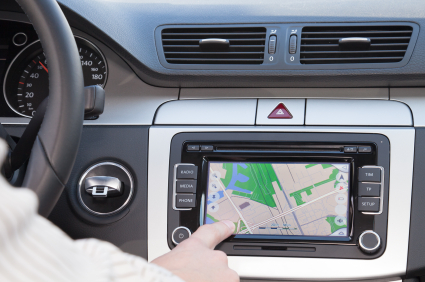Many companies operate and manage a large fleet of vehicles. One of the most expensive aspects involved with having a fleet is the cost of fuel. It can be difficult to properly budget for fuel since the price of gas is volatile. For this reason, many companies are considering switching to smaller vehicles to save money. Although this is one way to minimize the cost of fuel, there are other strategies that can be implemented to save money. In particular, many businesses are utilizing fleet tracking software to help save on fuel costs.
Data on Driver Behavior
GPS technology can provide today’s companies with key information about the behavior of their drivers. According to research, nearly 30 percent of a driver’s fuel economy is influenced by how they drive. The following are specific behaviors that are often linked with fuel economy:
- Poor driving habits, especially in hazardous conditions
- Idle time
- Inefficient speeds during clear driving conditions
When companies analyze the data from GPS tracking systems, they can evaluate these behaviors. If modifications are needed, they can make them to improve the overall fuel efficiency of their fleet. To gain a better understanding of how GPS tracking systems can help cut fuel spend for your organization, click here.
Driver Training
Since driver behavior plays such a crucial role in low fuel economy, driver training is crucial. This enables companies to enforce their policies and encourage safe driving on the road. Without analytics, these trainings are often based on trial and error. When a GPS tracking system is involved, the trainings can be targeted to meet the specific needs of the fleet.
Streamlining
GPS technology also helps companies streamline many of the processes involved with managing a fleet. For example, a lot of businesses streamline their routes. This prevents unwanted stops, and it often allows drivers to finish their jobs faster. When this occurs, less fuel is used.
Equipment Monitoring
A lot of companies also monitor how their equipment is used while drivers are working. This type of monitoring can also contribute to fuel efficiency. Drivers are more likely to make better decisions on the road when they know they are being monitored. In addition, monitoring the equipment can help a business understand what pieces perform better. With this type of information, they can make more informed decisions when they purchase additional vehicles for their fleet. Instead of simply choosing based on suggested mileage labels, they might select cars based on personal experience.
Reduce Idle Time
Arguably the biggest contributor to low fuel efficiency is idleness on the road. In the past, companies often overlooked telematics as an option to avoid idle time. Many assumed it was something they just had to deal with. However, more and more companies are recognizing the value that can come from implementing GPS systems to monitor their vehicles and drivers. The right data can help companies correct driving behaviors, plan better routes, and more. All of these strategies can contribute to better fuel efficiency.
Better fuel economy on the road is one of the primary benefits that can come when companies use a GPS system. However, there are many other valuable aspects to this tool. It has helped many businesses increase their efficiency and productivity. Even better, it eliminates a lot of the stress involved with fleet management.


